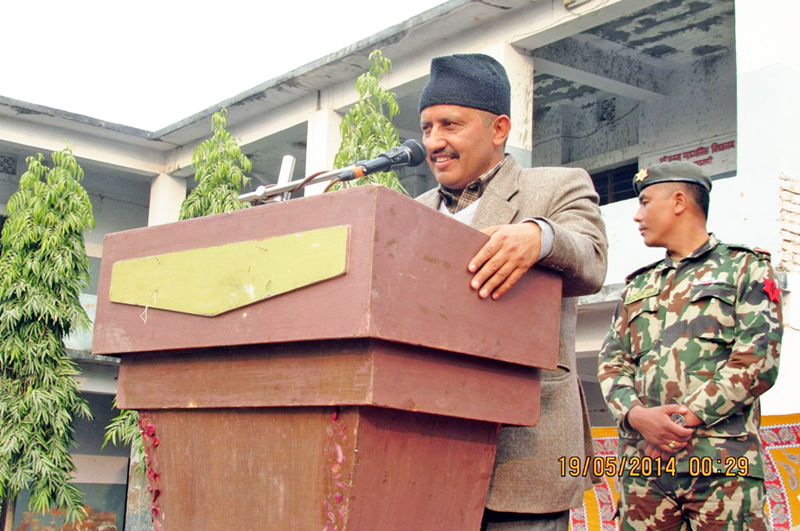UCPN-M posing hurdles in endorsing TRC, CIEDP regulations
Kathmandu, February 2
One of the major ruling coalition partners, UCPM-Maoist, is posing hurdles in endorsing the draft regulations of the Truth and Reconciliation Commission and the Commission of Investigation on Enforced Disappeared Persons.
Source said TRC and CIEDP draft regulations couldn’t be approved by the Cabinet because of strong protests by the UCPN-M on key provisions proposed in their drafts, including seizing passports of those who are under investigation in connection with the rights violations during the Maoist insurgency and barring them from travelling abroad.
Sources said Minister for Education Giriraj Mani Pokhrel, during a review meeting of the Cabinet’s statutory committee where these draft regulations are under consideration, had stated that he should ask his ‘party high-command’ before accepting such laws whose provisions are detrimental to the UCPN-M and its leaders.
Besides seizing passports and barring foreign visits, the TRC and CIEDP regulation drafts have provisioned issuing search warrant without prior notice against those who are under investigation. Officials claim these are common conditions applicable in most of serious criminal cases. TRC and CIEDP had forwarded the draft regulations for Cabinet’s approval in August.
Talking to The Himalayan Times, Minister Pokhrel admitted that his party had reservation on some key provisions of the drafts, which according to him, are contradictory to the TRC and CIEDP Act.
“We have found out that the proposed TRC and CIEDP regulations are not drafted in the spirit of the Act,” he said but refused to disclose the provisions of drafts that conflicted with the TRC and CIEDP Act.
According to him, he has already talked to his party Chairman Pushpa Kamal Dahal, leader Narayan Kaji Shrestha and Top Bahadur Rayamajhi, who is leading UCPN-M party in the Cabinet, about this and they opine that the “regulations should be made compatible with the Act”.
After years of delay, TRC and CIEDP were set up in February 2015 with a mandate of resolving all rights violation cases that occurred during the decade-long Maoist insurgency within two years. In the absence of regulations, these transitional bodies are yet to begin their work.
CIEDP spokesperson Dr Bishnu Pathak said the government and the UCPN-M had not been supportive in resolving the rights violations that occurred during insurgency.
“If we are ignored or fail to complete our task, the international community, including the United Nations, will set up their own tribunal and prosecute those involved in serious crimes during the insurgency,” Prof Pathak told THT.
Earlier, in an interview with this daily, TRC Chairman Surya Kiran Gurung had also expressed the same fear.






